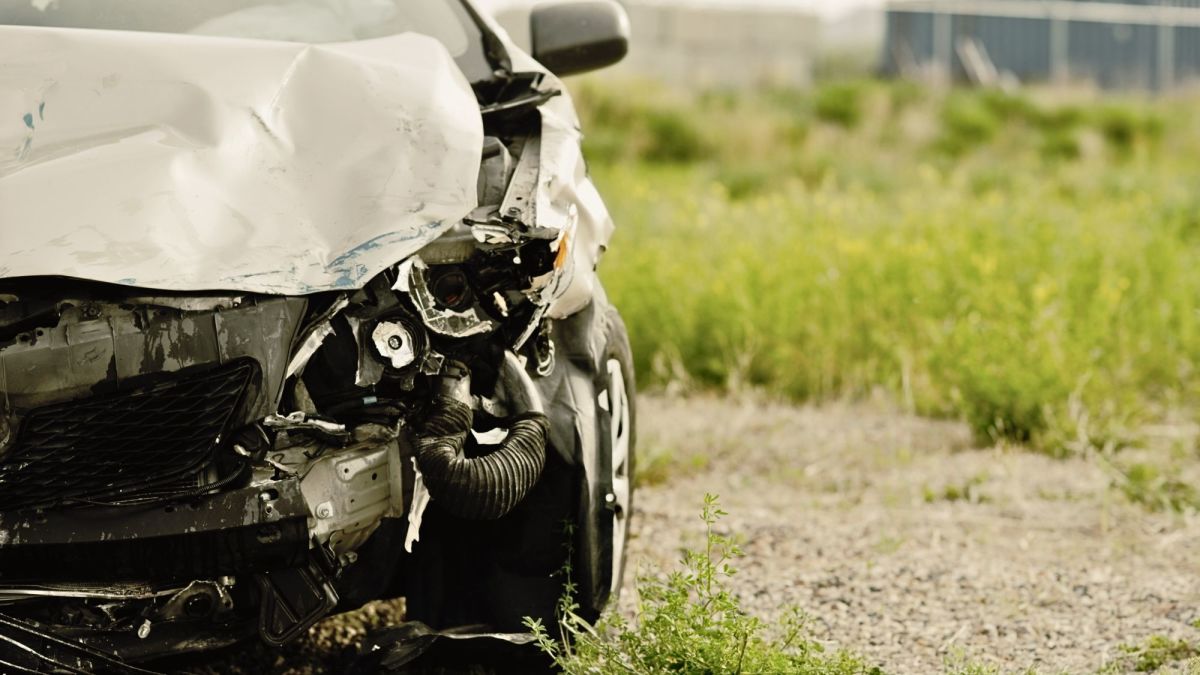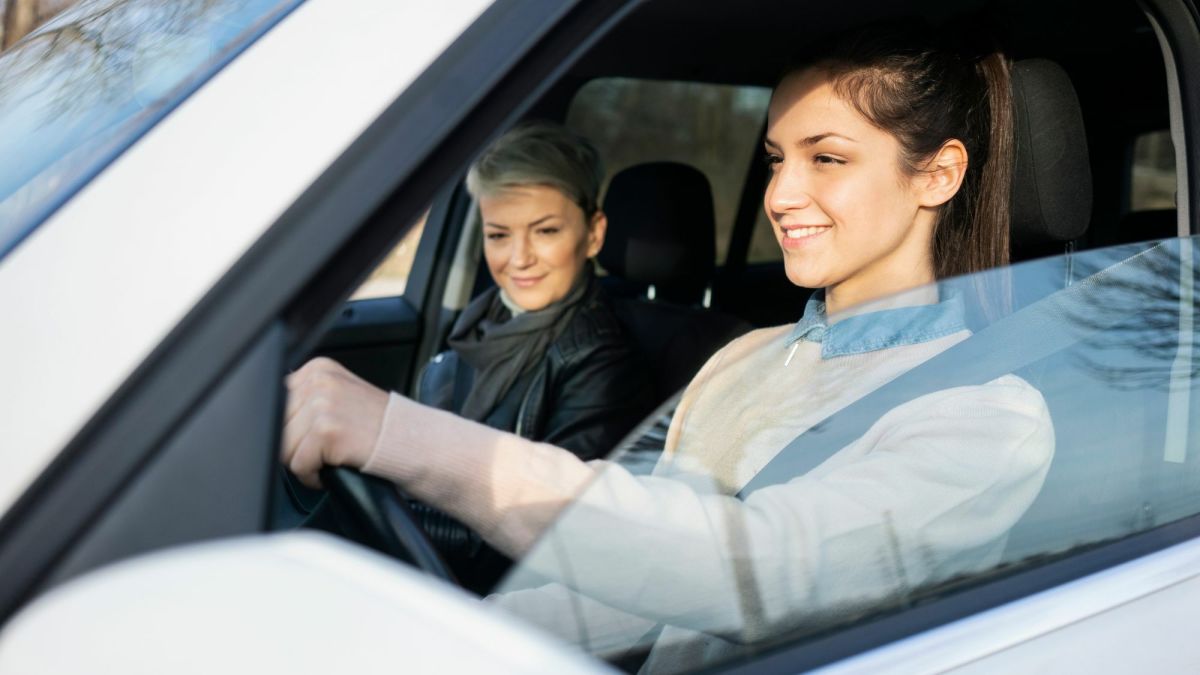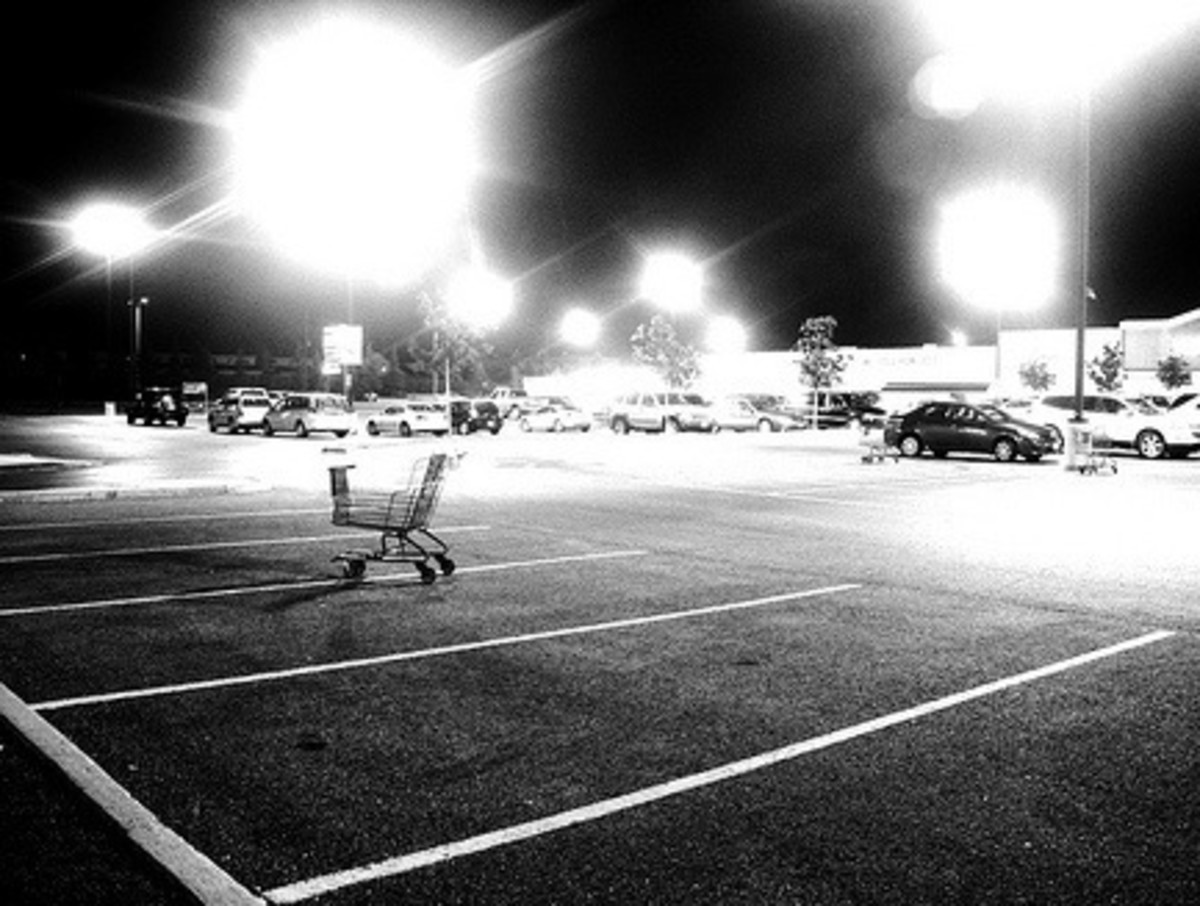Motor Insurance Claims
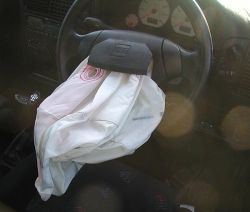
Car accidents can be scary. But your insurance claim needn't be
Many people don't understand how insurance works, so when it comes time to lodge a claim, they're not only upset at the necessity (after all, who claims because something good has happened to them?) but also confused about what happens from that point onwards. I didn't understand how it worked myself, until I started working in that industry, and since there's been quite a few events recently that have necessitated a lot of insurance claims, I thought I'd help create a bit more understanding about how it works.
Image by Users Lupin, Arpingstone on en.wikipedia [Public domain], via Wikimedia Commons
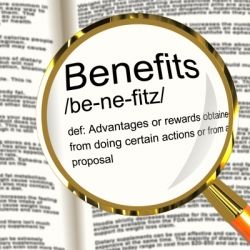
Types of Car Insurance
What's the difference? Well actually, quite a bit.
Generally speaking, these are the three (3) policy types you will be most familiar with being bandied about when talking about motor insurance. A lot of people aren't aware of just what the differences are between them, so here they are in basic terms.
Image: FreeDigitalPhotos.net
Compulsory Third Party (CTP)
This is the policy you pay for along with your registration every year, and you MUST have it. CTP helps to cover the cost of personal injuries caused in a motor accident, generally those we have caused to other people. Some CTP policies also cover the people who were in the car with us at the time of the accident, and also any injury we as the driver sustain.
Not all CTP policies are the same!!
I strongly suggest you look up exactly what yours covers.
Third Party Property (TPP)
This policy is often confused for CTP, but in reality they are quite different.
TPP covers the damage you cause to another car if you are at fault in an accident, but not to your own. If the other person is at fault, then the idea is for you to claim under their insurance policy.
Some TPP policies have a special extension if the at fault party who has damaged your car doesn't have any insurance. Generally speaking you will have to provide some sort of evidence that the TP isn't insured, and then you will likely only be covered up to a certain monetary value which is specified in your PDS. I have not noted any amounts here as each company has different terms and conditions; please read your PDS for the specifics of your particular policy.
There is also what's called Third Party Property with Fire and Theft (TPP F&T). This works just the same as the standard TPP but your car is also covered in the events of fire and theft as well.
Full Comprehensive (FC)
This is the policy I would personally recommend you invest in having. A FC policy will cover your car and the TP's car if you are at fault, and will cover the damage caused to your car by a TP when they are at fault. It also covers you for instances where that telephone pole leaps out into the middle of the road.. :-)
Usually you will find it also comes with some standard and optional benefits, e.g. hire car, free windscreen, etc. Again, each company has different benefits and stipulations in their policies, so you will have to read your PDS for the specifics.
Useful Devices

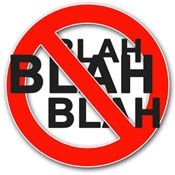
Insurance Jargon
A few insurance terms that you may possibly come across
It has been my experience that majority of people confuse some basic insurance terms, so the following are a few I found myself needing to explain.
This list is by no means exhaustive, and if you happen to have come across one that you would like mentioned here, please feel free to drop me a line, and I will add it as I can.
Covernote
This is the agreement of what your Policy will become once you have paid your Premium.
Policy
This is what you have paid your Premium to be covered for. When we talk about Product Disclosure Statements (PDS) this is the information about what your policy covers. Your individual Policy Statement or Insurance Schedule is generally sent to you at renewal time, and will have the details for what kind of cover you have, how much you are paying, the make and model of your car, the modifications and accessories you have notified the Insurance Company of, and any additional benefits you have purchased.
When you take out a Policy you will be given a Policy Number. Always a good bit of information to keep handy.
Premium
This is what you pay annually or monthly (depending on the option you chose) to have an Insurance Policy. The amount you are required to pay can, and frequently does, change from year to year, depending on circumstances.
Claim
This is what you make when you have an accident; an Insurance Claim. When you have lodged the Claim you will be given a Claim or Reference Number - a Very Important piece of information! This is what you will need to have when you call the insurance company for updates on the progress of the repairs to your and/or the TP (Third Party)'s car.
Excess
This is what you pay at Claim time if you are at fault, or cannot provide the details of the person who is at fault e.g. struck while parked, Third Party unknown.
If when you are lodging the Claim the operator is unsure of whom exactly is at fault, they will often 'hold' the Excess until more information becomes available; that means it will be flagged on your Claim, but they will not ask you to pay it just yet.
There are actually different types of Excess' applicable for different people in different situations.There is usually a Standard Excess, but you can also have an Age Excess which is applied based on the age of the DRIVER not the owner during the accident, an Inexperienced Excess, and an Optional or Flexi Excess which is generally tied into your Premium. For more information on Optional or Flexi Excess', I strongly suggest you speak to your Insurance Company as the specifics vary.
When an accident occurs, there's always the question of who's at fault for causing it.
Look for these boxes throughout the hub for some basic at-fault scenarios. They aren't hard-and-fast, but should give you a slight rule of thumb (especially in Queensland, Australia!) as to the where-of's of accident liability.
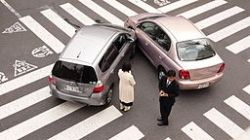
The Accident
What you should do on the scene
Firstly, always make sure you get the particulars of the other person involved, specifically:
- Name
- Contact phone number
- Registration number
- Contact address
- Insurance company
This person is generally referred to as the Third Party.
It is worth asking the person driving if they are also the owner of the car, because if they aren't, you'll need to ask for the owner's details too.
Another good move is to take the contact details of any Independent Witnesses; that is, someone who was neither in your car or any other vehicle involved, nor is known by you or the other driver/s.
Whoever was at fault, try to keep your cool; heck, you've both just been in a motor accident! They're probably as upset that it's happened as you are.
If the incident is one where you've accidentally reversed or hit another parked car, always leave your contact details for the Third Party. After all, if the shoe was on the other foot and someone hit your car when you weren't there, wouldn't you like them to 'fess up also?
If the incident is a single vehicle only e.g. reversed into a power pole, then generally speaking there is no Third Party information to gather, unless you have run into someone's fence, in which case you need to speak to the owner as you are liable for the damage caused to their fence, and your insurance can cover that in most cases. Read your Product Disclosure Statement for more information.
If your car is safe to drive home, it's best to do so before calling your insurance company, because the last thing the operator wants is to put you in danger while lodging your claim.
Do not, I will repeat, do not lodge your claim while driving home on a mobile phone using a hands-free device - not only is talking on a mobile while driving not legal in some states, it's not a smart move because the claims operator will be asking you for detailed information and at the end of the call will be giving you your claim number, so your full and undivided attention will be required. Don't tempt fate for another - and likely worse - accident on the way home.
If your car is un-drivable, do not attempt to drive it home; call for a tow truck. If you have roadside assist, sometimes they can assist you with arranging a tow truck. If you don't have roadside assist and do not know the contact details for a tow company, by all means call your insurance company, as their claims operators will have a list of towing companies they use available and will be more than happy to advise you. Again, it's best to call to lodge the actual motor claim once you're safe and sound at home; while you can lodge from the scene of the accident while waiting for the tow truck to arrive, you should keep your mobile available for the tow driver to call you.
So, you're home, you're safe. Now it's time to make that call.
Image By Shuets Udono (http://www.flickr.com/photos/udono/408633225/) [CC-BY-SA-2.0 (http://creativecommons.org/licenses/by-sa/2.0)], via Wikimedia Commons
Quick FAQ
"If I'm at fault and someone's claiming on my policy, even though I'm not repairing my own car, will my premium go up?"
Not as straight forward a question to answer as you might think!
At the companies I worked for, any claim resulted in your premium going up somewhat at renewal time, however there are SO MANY OTHER FACTORS that go into calculating your premium, it would be ludicrous to try and say by how much that will be.
If you want to know more, call your insurer. They'd know best!
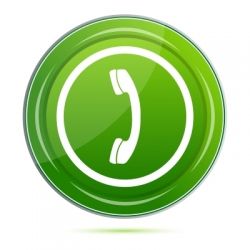
The Claim Lodgement
The basics of what to expect
Firstly, when you ring up or go into the customer service center, you will be asked to provide some information so that the customer service office can locate your policy in their system. Some of the identifying questions they may ask are:
* Policy number
* Registration number
* Full name
* Date of birth
* Telephone number
* Full address, residential or postal
Once they have confirmed with you that they have located the correct policy, the officer should usually outline what kind of policy you have, what additional benefits you have purchased, and the applicable excess'.
From here they will ask the driver to describe in their own words what exactly happened in the accident. It is important to be completely truthful and to include as much detail as possible; the officer will ask you more questions to clarify their understanding of the situation, and should then read back to you what they have written to confirm that they have understood clearly and correctly what has happened. They will also ask if there was anyone else in the car, were there any other cars involved, did the police attend, were there any witnesses whose details you obtained.
Next there will be some standard questions that everyone gets asked regarding what kind of license the driver has, how long they've been driving, how old they were when they started driving, whether they have consumed any alcohol in the 12 hours leading up to the accident, whether they have any previous claims or a criminal history.
Third Party details next, then Witness details, also Police Report details.The officer should then confirm the details for the vehicle involved such as make, model, what colour and kind of paint, and whether you have added any other modifications or accessories.
Sometimes, the insurance company procedure may dictate that the claims officer needs to ask you some extra questions, usually regarding the 12 hours leading up to the accident. The situations that call for these can differ between companies and even from claim to claim, and should be accommodated to with good grace. After all, the operator is not there to make your life harder, they are there to help you while also operating within the strictures imposed by the company. Please don't get grumpy with them about it - again, they're just doing their job.
Once all of the information has been collected by the officer, they will advise you of any excess' and/or rating effects applicable. They should also offer you any of your additional benefits, such as a hire car, and make arrangements for you.
Image: FreeDigitalPhotos.net
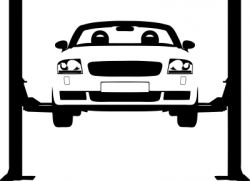
Repair Processes
What happens next
Each insurance company will have their own procedures that they use when it comes time to repair your vehicle.
Some companies will have the option where you can drop your vehicle off at a Customer Service Centre and then send you off in a taxi to wherever it is that you need to be next. They then organise for repairers to come in and quote on the repairs to your vehicle, and will have it assessed to make sure that the repairer that wins the job to repair your car had the most complete and cost effective quote (that is to say, they aren't ripping the insurance company or yourself off!). The car will then be collected by the winning repairer, and you will be contacted to be advised who that repairer is, and roughly how long it should take to repair your car.
** Please note: it's only ever an estimated time frame for repairs!! Unfortunately, things can and do go wrong, from staff being sick to there not being the parts available in your country. Please, please remember this when things seem to be taking 'too long'. The last thing anyone wants is a quick, shoddy job of it!
Other times you will be asked to provide some quotes for repair yourself, generally two for comparison. Once you have these you will be asked to book a time to take your car to the customer service centre for an assessor to look over the damage on your car against the quotes you have obtained. At the end of the appointment they will let you know which repairer has been successful, and you can then book your car in with that repairer at a time that is mutually convenient.
Other times, when your car isn't able to be driven, it will be taken directly to the customer service centre or repairer, and a similar process of assessment and repair will take place.
If you have already arranged and complete the repairs to your vehicle prior to claim lodgement, you may be required to provide copies of the quotes and some other supporting evidence before the claim is paid out. There is no guarantee that you will receive a full reimbursement for the cost of repairs you paid. I strongly recommend contacting your insurance company before undertaking any repair work - that way you don't run a higher risk of being even further out of pocket than necessary.
Again, each company has different processes and procedures, and those listed here are only a few. If you encounter another type of process, please feel free to contact we with the details and I am more than happy to add it on here.
Image: FreeDigitalPhotos.net
"I drove into something that wasn't moving (i.e. a pole, fence, parked car, etc)"
The driver will be held as At Fault - after all, it if wasn't moving, how could it have put itself in the way of a moving vehicle?
The one exception is when you have a door hanging open into another space in a car park, and someone hits it. Then the owner of the door MAY be held at fault as their door was encroaching on another car's space.
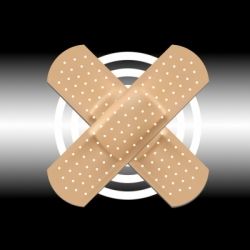
I've found an issue with the repairs....
That's fixable, too.
In the event something has gone wrong with the repairs to your vehicle, in most circumstances it's a relatively simple issue to address.
If you've noticed the issue when you go to collect your vehile after the initial repairs, you need to speak to the repairer or the assessor (depending on where you are collecting the car from) straight away! They may not be able to act on the issue on the spot, however the sooner it's brought to their attention, the sooner it can be scheduled.
If you've gotten the car home, and the issue presents itself further down the track, contact your insurance company and advise them of the situation. Try to include as much detail and fact as possible to avoid any miscommunications.
Generally, at this point you will be asked to take your vehicle either back to the repairer, or to the assessing centre. From there the issue will be inspected, and the best option to rectify and proceed will be discussed with you.
Voila!
Image: FreeDigitalPhotos.net
Quick FAQ
"If I'm not having my own car repaired, but the other person is claiming on my policy because it's my fault, do I still have to pay my excess?"
The short answer is yes: if you're at fault, the excess is your contribution towards the repair costs. If you have a full comprehensive policy, that would be for both your car and the TP car. If you only have a Third Party Propety policy, I'm afraid you don't get repairs if you're at fault.
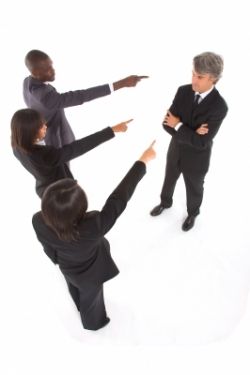
A question of liability...
Was that my fault?
Almost everyone knows a story about a friend of a friend who got ripped off by an insurance company because they were held liable for the accident when in fact it was the other party.
The fact of the matter is, liability or responsibility for an accident between two or more vehicles isn't always clear cut, and what we would sometimes assume is logical isn't how the law sees it.
For instance: you're in a parking bay with your door open into a currently empty parking bay beside you. Someone turns into the parking bay and hits your car door.
They're at fault, right?
Well, maybe not. While most people assume the responsibility of this particular senario would be with the person who didn't look before driving into the parking bay, the car door is actually encroaching in their space. Go figure!
Whereas if they had hit your car without your door being open, they would have been responsible for hitting a parked car.
I know! Crazy, right?
To be clear, the above senario is what would happen under Queensland law (That's in Australia, don't you know), so the laws in your state, county or country may be very different.
The same could be said for hit in rear incidents. Generally speaking, the person with front damage will be held liable, as most of the time they have failed to travel at a safe speed and keep a safe distance from the car in front.
When there is more than one car involved in a nose-to-tail incident, try to remember how many times you felt the car be hit, as this can be telling for who is actually responsible for things.
My experience is that the person at the very back of a more than two car pile up can be held at fault if the drivers in front felt only one bump. However, more than one, and it might be someone from closer to the front, as sometimes people behind the original offender can be caught in the mess.
Each situation is individual, and will be assessed as such. The liability decision made the last time you had an accident of one type is not a guarantee of how it will pan out this time. It is the responsibility of the insurance officers charged with settlements and recoveries to ask many questions to obtain as much information as they can regarding the circumstances of the accident before making a decision. The more you cooperate with them, the more likely the process will be quick and smooth sailing for you.
That said, decisions made by insurance companies can and have been disputed by the party or parties involved before.
Sometimes this was done through the company's internal dispute resolution department, who is independent of the people involved in processing claims. Sometimes it goes to an ombudsman, and sometimes it goes to court.
I must be clear here: be very sure of your ground before pushing a claim dispute past the ombudsman level.
While it is your right to do so, it can be an expensive and protracted process, and there is no guarantee of joy at the end of it.
There are so many other situations that could happen, it is impossible for me to list them all here. Far better to drive carefully, educate yourself on the driving laws in your area, and stay aware when driving.
Image: FreeDigitalPhotos.net
"I rear ended someone"
With a few notable exceptions, the person at the back of a pile up will generally be held at fault. However, be sure to note (in the unfortunate circumstance of having been hit in the rear) whether you felt 1, 2, or more bumps. This could be very important at claim time!
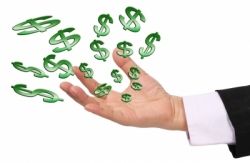
Recoveries and Settlements
Who pays
The recovery and settlement aspect of the claims process is one some people may be familiar with if they have ever been involved in an accident.
Recoveries
This is the process of recovering the cost of the repairs from the at fault party - after all, if you did the damage, it's only fair you pay for it. This is when it's important to pay your excess, because with rare exceptions, it's likely to be much cheaper than any of the repairs required by the other person.
If the TP's insurance company doesn't have your insurance company's details, you'll likely receive a phone call from them to check if you have lodged a claim with your own insurer. This is one of the reasons you have insurance, so they can deal with these people the the negotiations that sometimes take place for you. Once you've paid your excess, you can leave the other party to float out of your mind, and concern you no longer: the big guns have it in hand.
Settlements
This is when the insurance company of the at fault party pays the other insurance company for the cost of repairs. It's taking the financial responsibility for the accident, and is frankly why we have insurance.
Recovery and Settlements Officers frequently negotiate between them for the cost of repairs, hire cars, and some other costs that might be associated with having a car repaired, and they're pretty darn good at it too. They primarily communicate with their counterparts at other insurance companies, but will sometimes talk to customers also, especially when trying to gather information to make a liability decision, or dispute a liability decision.
I strongly recommend contacting your own insurance company when you have an accident for advice as soon as you can after the accident - don't put it off and possibly have a debt collector chasing you.
Quick FAQ
"I think the repair cost was a rip-off; how do I make them not pay?"
Umm, well, you DON'T. The insurance company has trained assessors and experienced repairers in their employ, all of whom work together to make sure the repair cost is as competitive and cost effective as possible.
While you mightn't feel that the price is a bargin, at the end of they day, the only cost you will personally have to worry about is the excess.
Stress less, and let the big guns bat it out for you :)

P.S. If you take away just one thing
I want people to have a better understanding of how a motor insurance claim works, both for their own benefit as the person claiming, and also for the person or persons who will be dealing with the claim on the insurance company end, to create a lot less stress all-round!
The people serving you who work for the insurance company are just like you - people. They do the very best they can within the confines of the policy and procedure imposed by the Powers That Be, and the time and circumstances they find themselves in.
Speak as you would prefer to be spoken to, and remember that you get more bees with honey than with vinegar.
Now that you have some basics, are there any more questions?
Obviously the information I've provided won't be correct for each and every senario you encounter. There are so many variables, it would be quite difficult to have it all on one lens!
However, I have a few ideas of things, based on the trend of comments I've been getting, for some affiliated lens ideas.
Please let me know which options you feel would be most beneficial to you!
Keema, could you pretty please make a lens about:
Australian Insurance Companies
Here's a by no means exhaustive list of Motor Insurance Companies in Australia.
If there's a company not listed here that you would like added, please let me know and I will add as many as I can.
- AAMI
Get your Car Insurance, CTP Insurance, Green Slips, Home Insurance, Travel Insurance and Business Insurance with AAMI Homepage Get a Quote New Quote Retrieve A Quote Make a Payment Customer Service My Policy Manager Skilled Drivers Claims Dealing wit - Allianz
Get a car insurance or home insurance quote in 2 minutes. Besides car insurance and home insurance, Allianz Australia also offers business insurance and life insurance. Insure with one of Australia's largest general insurance providers. - Apia
Australian Pensioners Insurance Agency - CGU
CGU is one of Australia's largest intermediary-based general insurers. Part of Insurance Australia Group, we offer a wide range of commercial, rural and personal insurance products for individuals, families and large multi-national corporations. - Budget Direct
Australia's CHEAPEST Car Insurance. Awarded by Money magazine 'Best of the Best'. Save 25% on Comprehensive Car Insurance bought online! Quote now! - NRMA
NRMA Insurance and NRMA Motoring & Services, Australia's leading insurance, motoring and travel companies - RACQ
For insurance and road side assistance - Suncorp Insurance
The Must Have insurance. - Youi Australia | Car & Home Insurance
Paying too much for insurance? Get a tailor-made insurance quote and find out how much you could save! Call 1300 009 684 today.
Please help me to continue to help you! Any constructive suggestions for additions, alterations, improvements, etc. are ALL gratefully received!


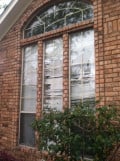
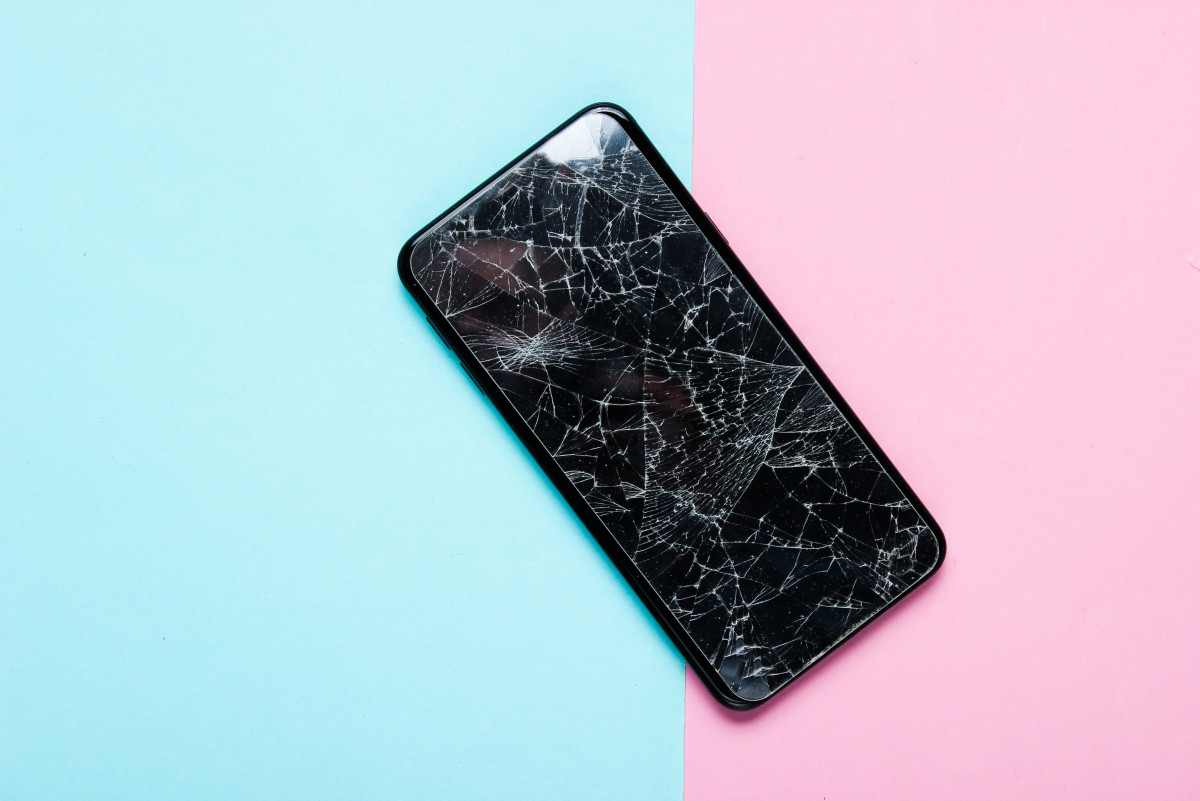

![Obama's General Motors [GM] Tarp Bailout - The Untold Details Obama's General Motors [GM] Tarp Bailout - The Untold Details](https://images.saymedia-content.com/.image/t_share/MTc0MTU0NDA1OTcxNzY1MTE2/obama-general-motors-gm-tarp-bailout-untold-details.jpg)
